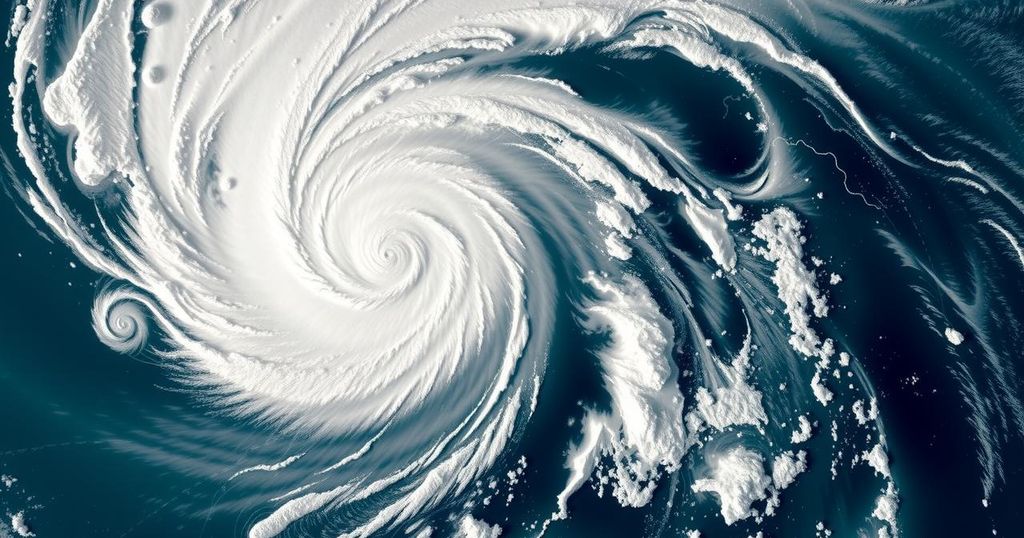Cyclone Chido Causes Devastation in Mayotte and Threatens Eastern Africa

Cyclone Chido has devastated Mayotte with winds over 220 km/h, causing severe damage and prompting emergency responses. The storm is heading towards Mozambique, with millions potentially at risk. Historical cyclone events in the region highlight exacerbated challenges linked to climate change.
Cyclone Chido has wreaked havoc on the French territory of Mayotte, prompting significant damage as it approaches the eastern coast of Africa. According to the French meteorological service, the storm generated winds exceeding 220 kilometers per hour, resulting in severe destruction, including uprooted trees and damaged homes. As local authorities begin recovery efforts, they report that thousands are without power, and many structures have been obliterated.
Mayotte’s Prefect, Francois-Xavier Bieuville, classified this cyclone as the most catastrophic since 1934, noting that numerous residents have lost everything. Although no immediate fatalities have been reported, the island remains under a red alert for residents, urging them to remain in safe shelters. In addition, emergency personnel have been mobilized, with 110 firefighters and rescuers dispatched from France and Reunion, and an additional 140 set to follow.
In addition to Mayotte, the nearby nation of Comoros is also reeling from the effects of Cyclone Chido, where a red alert has been issued in several regions. Authorities express concern for a group of fishermen who have disappeared at sea. In response to the cyclone, Comoros has suspended maritime activities, closed the primary airport, and closed schools to prepare for the looming storm.
Chido is anticipated to continue its path towards Mozambique, potentially affecting up to 2.5 million individuals in the northern provinces. Neighboring countries, including Malawi and Zimbabwe, are also on alert for possible flooding and are advising residents to seek higher ground if necessary.
The cyclone season, which typically spans from December to March, has witnessed an increase in the frequency and severity of storms linked to climate change, imposing grave challenges for impoverished regions in southern Africa that contribute minimally to global climate issues. Historical context reveals that prior cyclones, such as Idai and Freddy, devastated the same regions, resulting in considerable loss of life and increased risk of waterborne diseases post-disaster.
Tropical cyclones are a recurrent threat to coastal regions, particularly in the southeastern Indian Ocean, where the cyclone season lasts from December to March. In recent years, the impacts of climate change have exacerbated the frequency and intensity of these storms. Vulnerable nations in this region often face dire humanitarian crises following such events despite their minimal role in global climate emissions, as seen in the catastrophic aftermaths of Cyclone Idai in 2019 and Cyclone Freddy last year, which resulted in thousands of fatalities across Mozambique, Malawi, and Zimbabwe. These storms not only cause immediate damage but also lead to significant long-term health risks, such as cholera and malaria outbreaks due to stagnant waters.
In summary, Cyclone Chido has caused substantial damage in Mayotte, marking the territory’s most severe cyclone in nearly a century. With ongoing emergency efforts and heightened warnings across the region, neighboring nations head into a perilous phase as the storm approaches Mozambique. The recurring cycle of cyclones in this area, worsened by climate change factors, underscores the urgent need for robust disaster preparedness and international support to mitigate the adverse effects of these natural disasters.
Original Source: www.voanews.com








